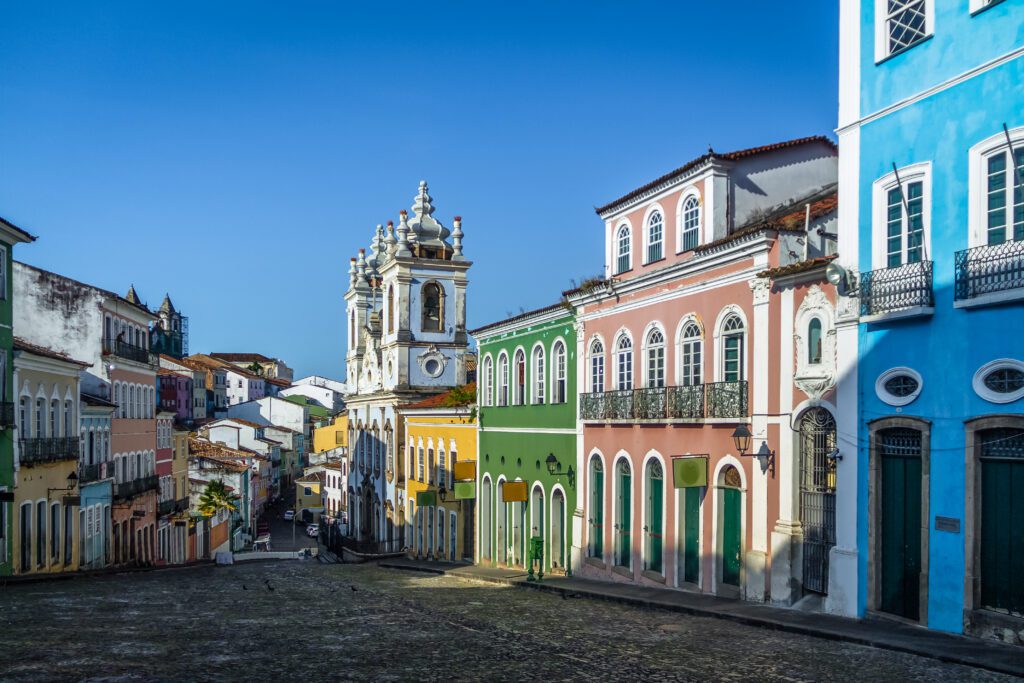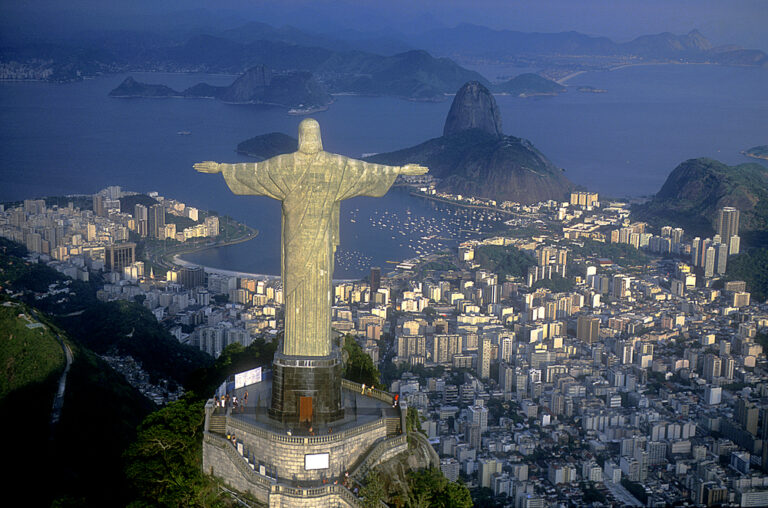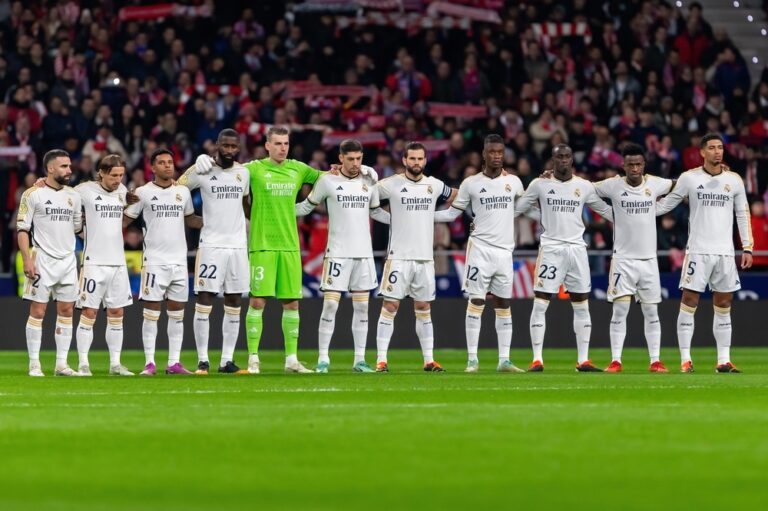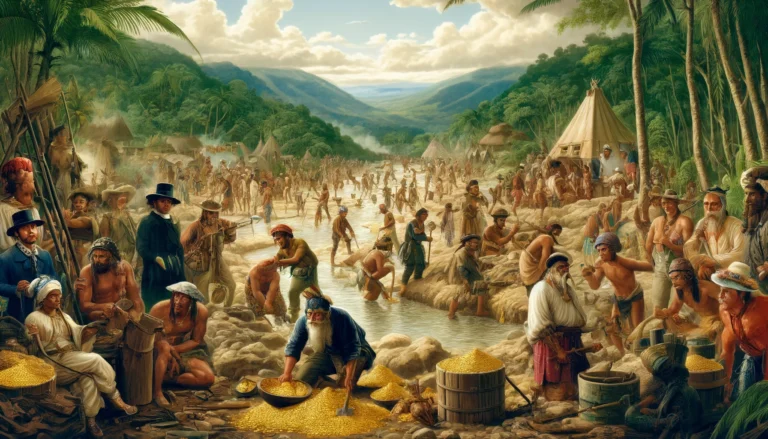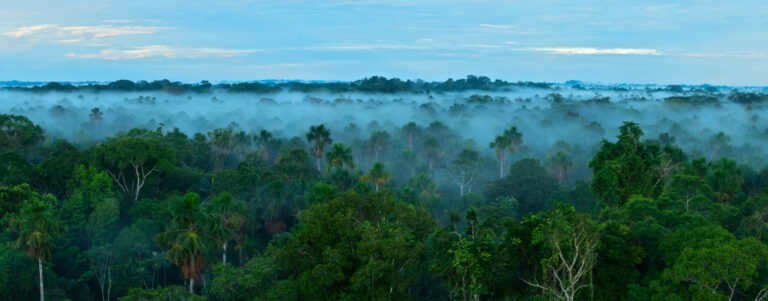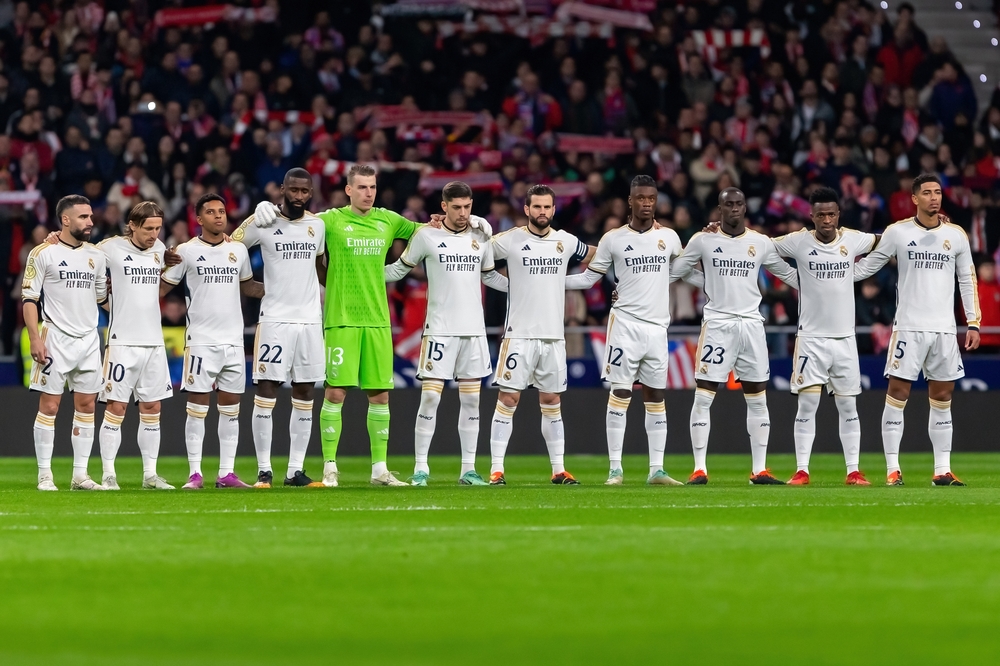Table of Content
Toggle1549 the foundation of Salvador
Salvador da Bahia, also known as Salvador, is the capital of the Brazilian state of Bahia and is located on the northeast coast of Brazil. It was founded in 1549 by the Portuguese colonizers as the first capital of Brazil. The city was named after the savior of the world, Jesus Christ, and the bay on which it was founded, Baía de Todos os Santos (All Saints Bay).
Salvador was an important port and trade center during the colonial period and played a significant role in the early history of Brazil. It was also the center of the African slave trade in Brazil, and many African slaves were brought to the city to work on sugar plantations and other industries. Salvador is a vibrant and diverse city with a rich cultural heritage and lively arts scene. It is known for its beautiful beaches, colonial architecture, and live music and dance traditions, including samba and capoeira.
It was named after the savior of the world, Jesus Christ, as a way to express their religious devotion. The Portuguese were Catholic and had a strong belief in the power of religion to guide and shape society. They often named places and institutions after religious figures or concepts as a way to express their faith and honor God.
In the case of Salvador, the city was named after Jesus Christ, who is revered as the savior of the world in the Christian faith. The name “Salvador” is derived from the Latin word “salvator,” which means “savior.” The city was also named after the bay on which it was founded, Baía de Todos os Santos (All Saints Bay). This name refers to the many saints of the Catholic Church, who are believed to be the intercessors and protectors of the faithful.
Overall, the naming of Salvador reflects the religious beliefs and values of the Portuguese colonizers and their desire to honor God and the Christian faith in their endeavors.
Important port and trade center
The city was located on the northeast coast of Brazil, and its strategic location made it a key hub for trade between Brazil and other parts of the world.
The main goods that were traded through the port of Salvador included sugar, tobacco, gold, and other natural resources that were exported from Brazil to Europe and other markets. The Portuguese also imported a wide range of goods into Brazil through the port of Salvador, including manufactured goods, textiles, and other products.
Salvador’s importance as a trade center was due in part to its location on the Atlantic Ocean, which made it a convenient gateway for trade between Brazil and other parts of the world. The port of Salvador was also a key hub in the African slave trade, and many African slaves were brought to the city to work on sugar plantations and other industries.
Overall, the port of Salvador played a significant role in the economic development of Brazil and was a major center of trade and commerce during the colonial period.
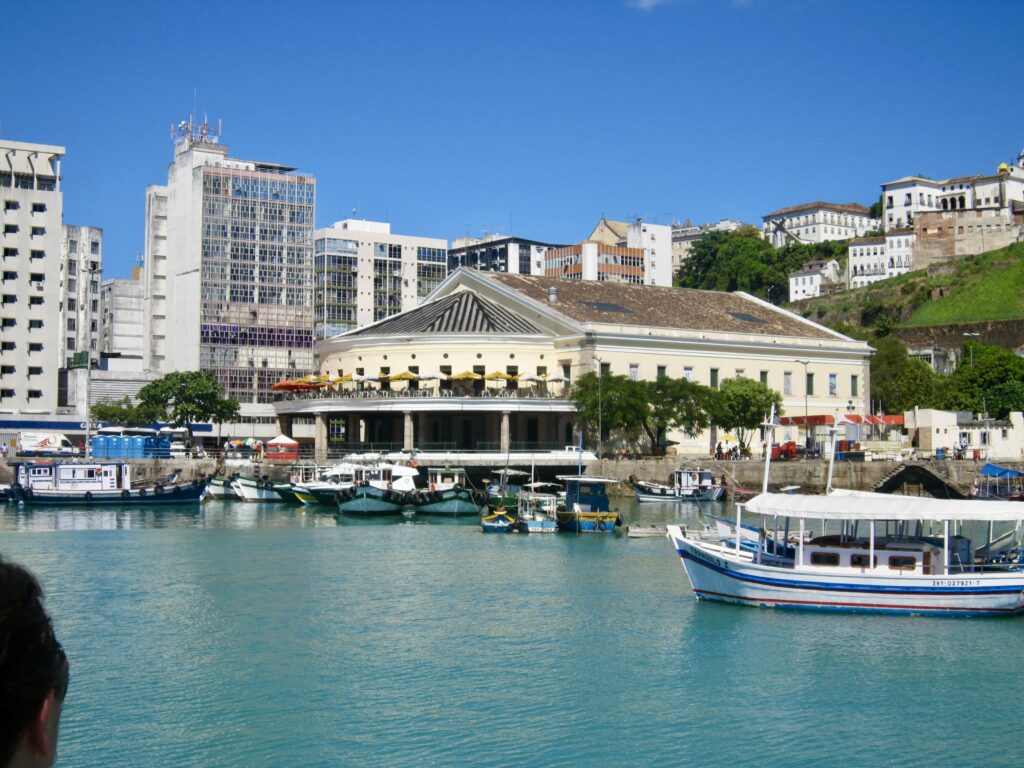
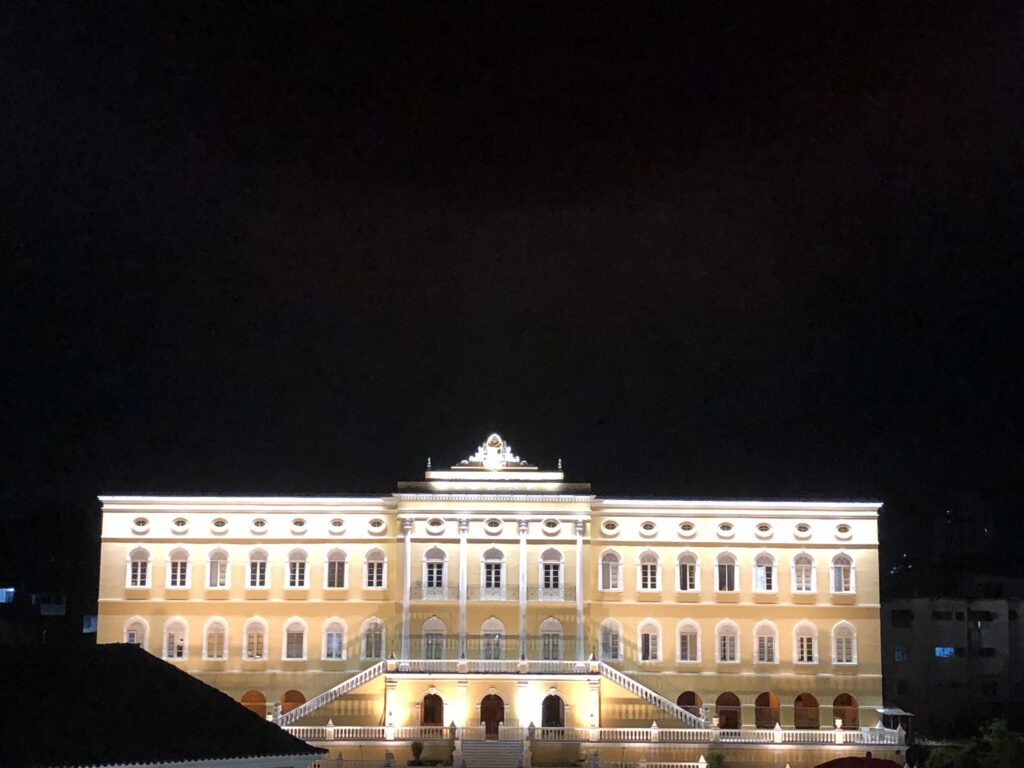
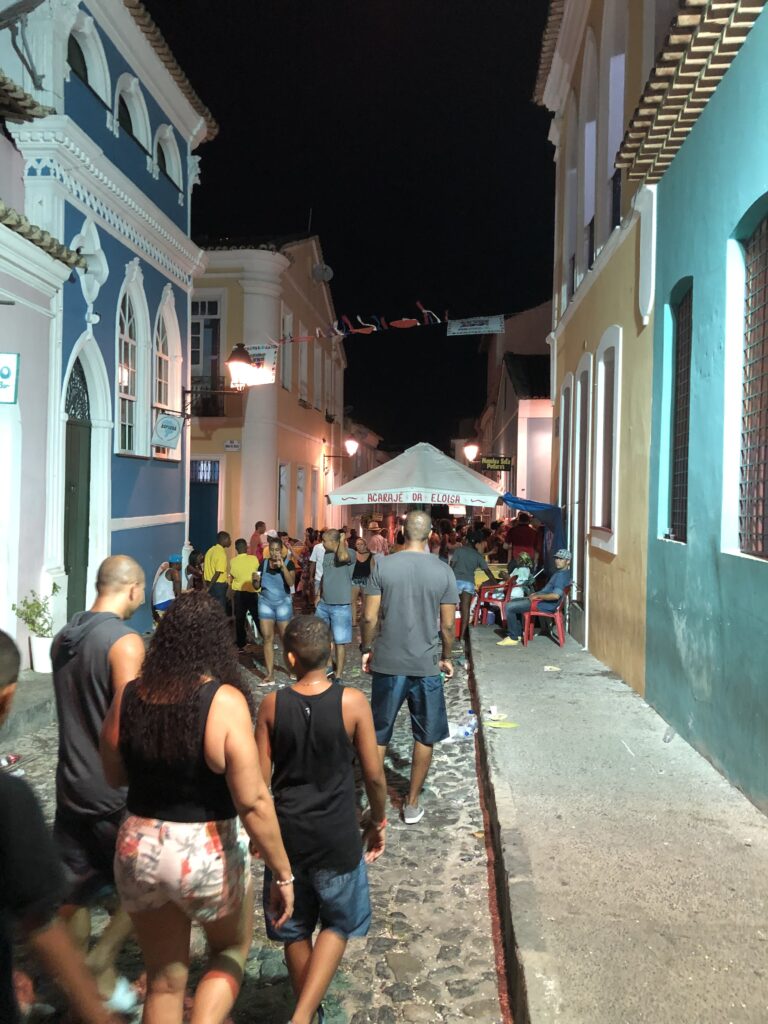
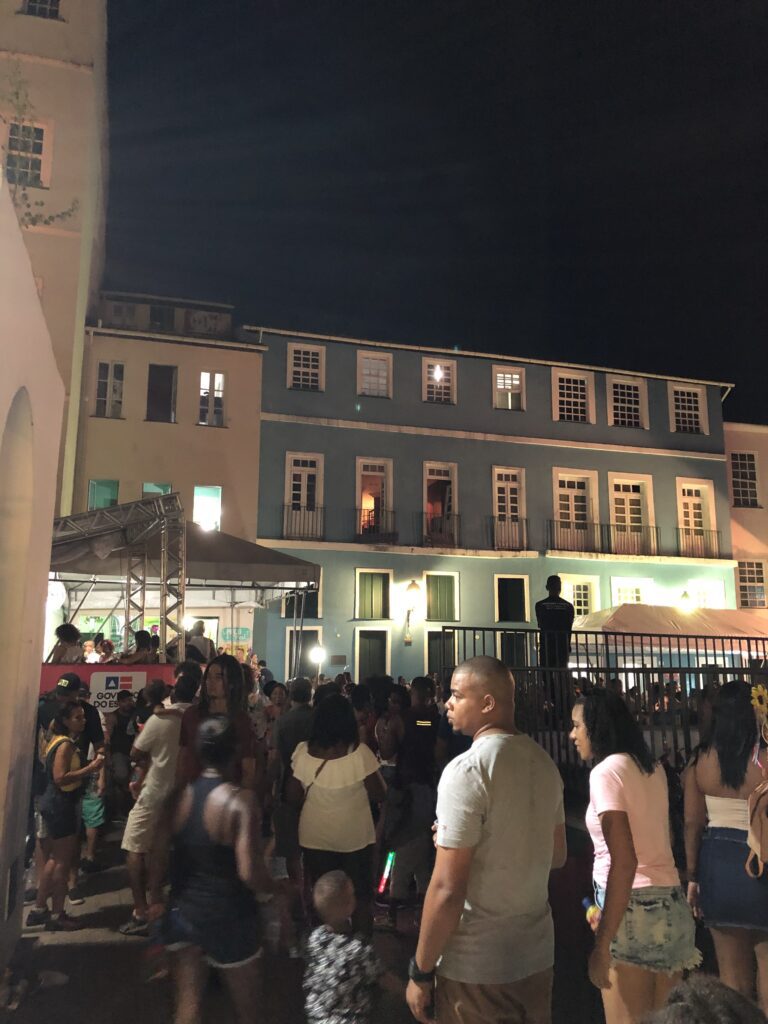
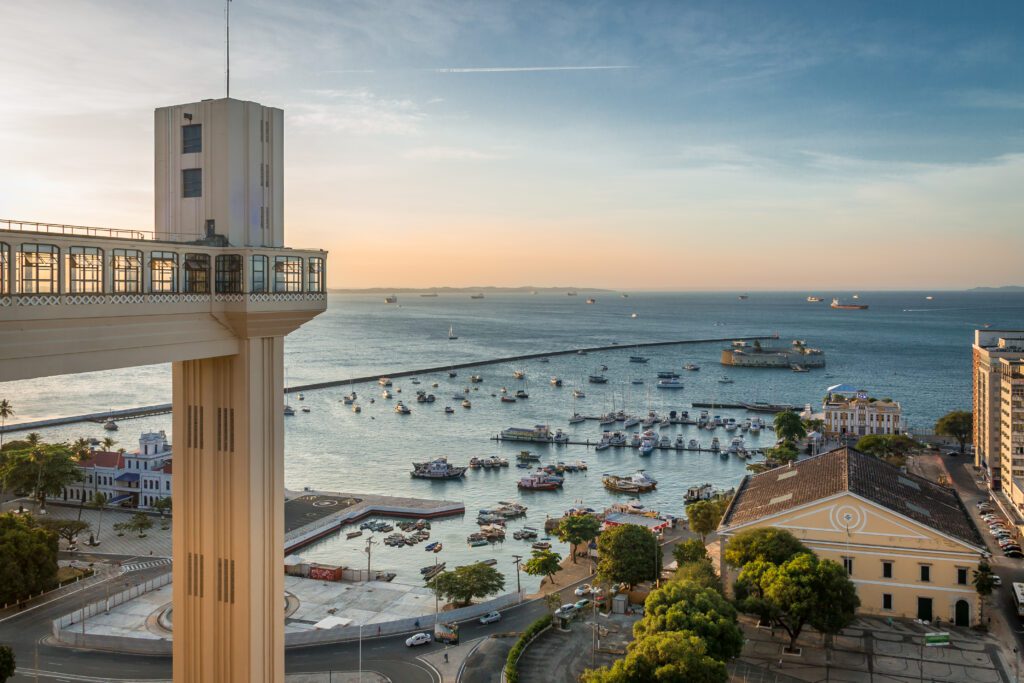
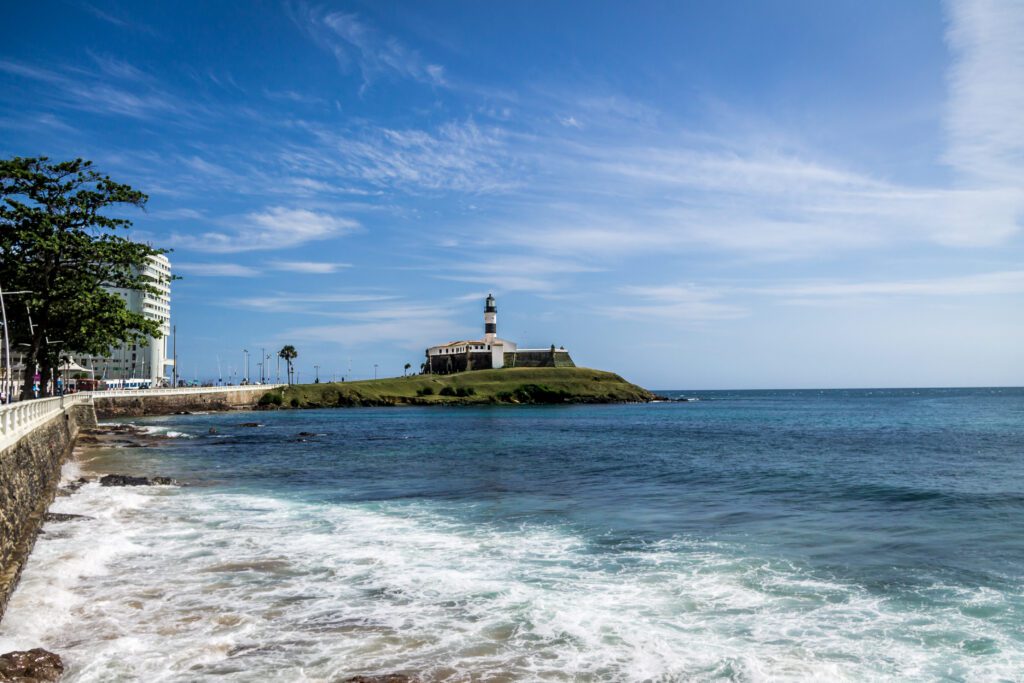
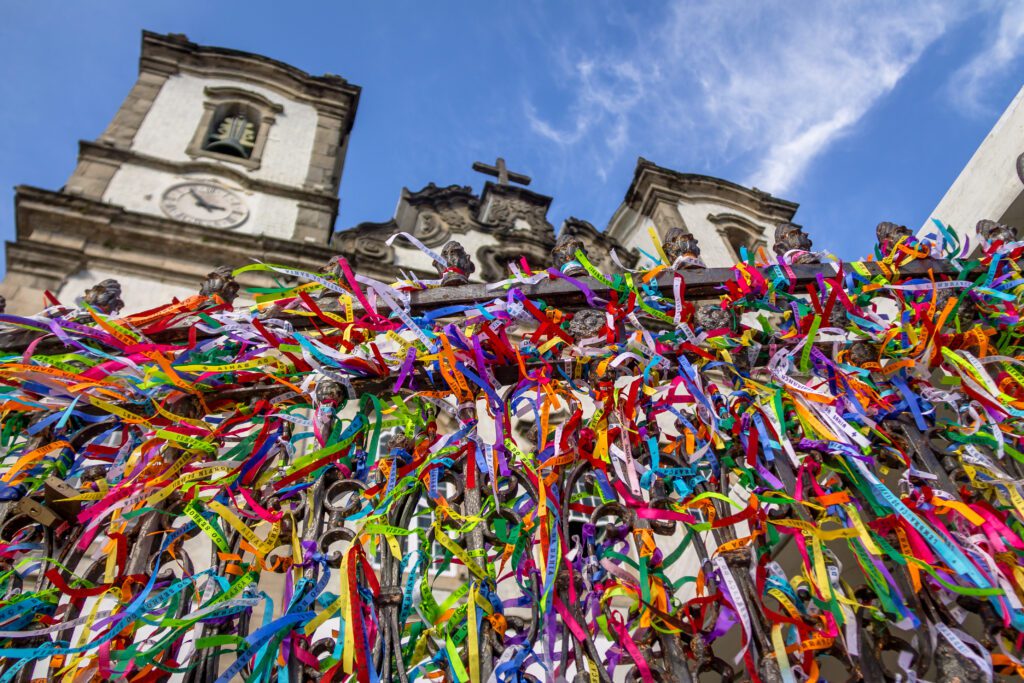
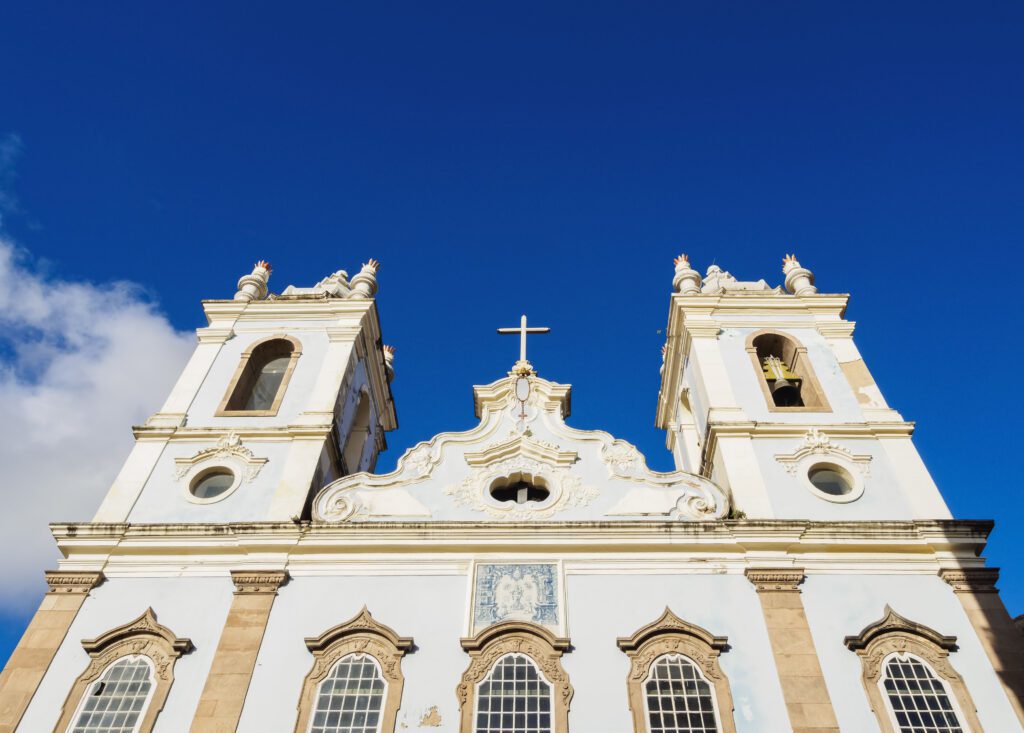
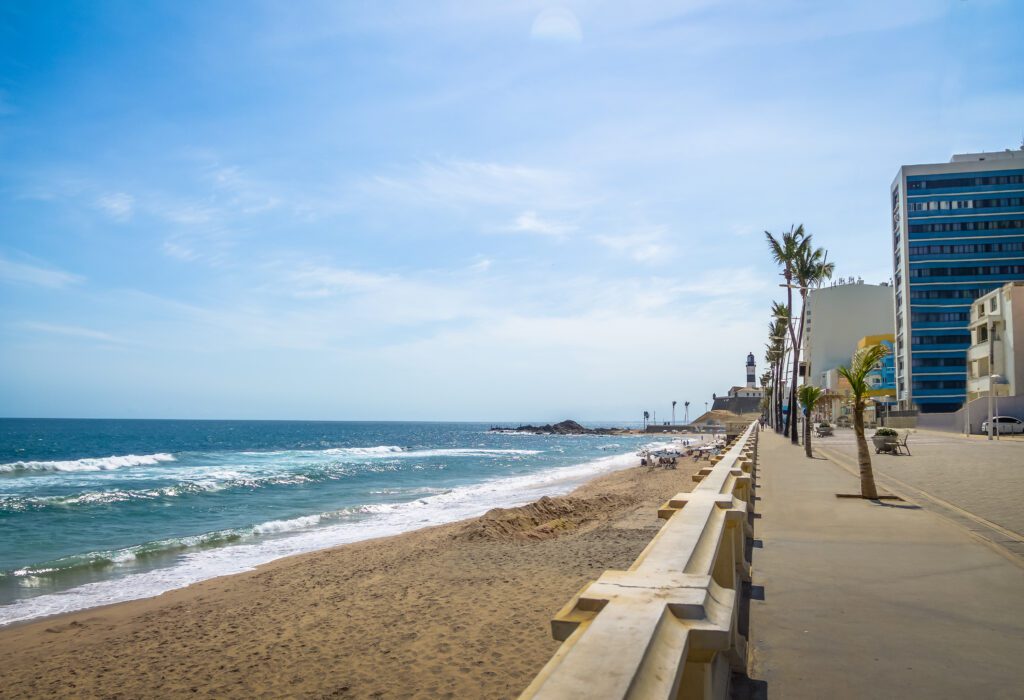
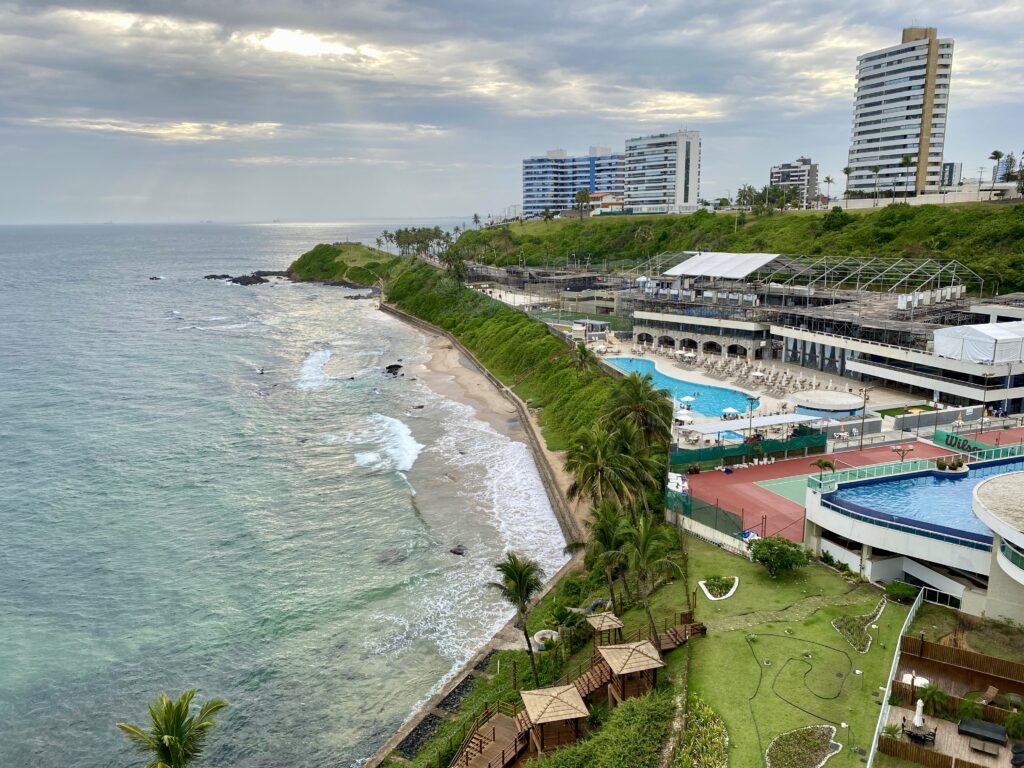
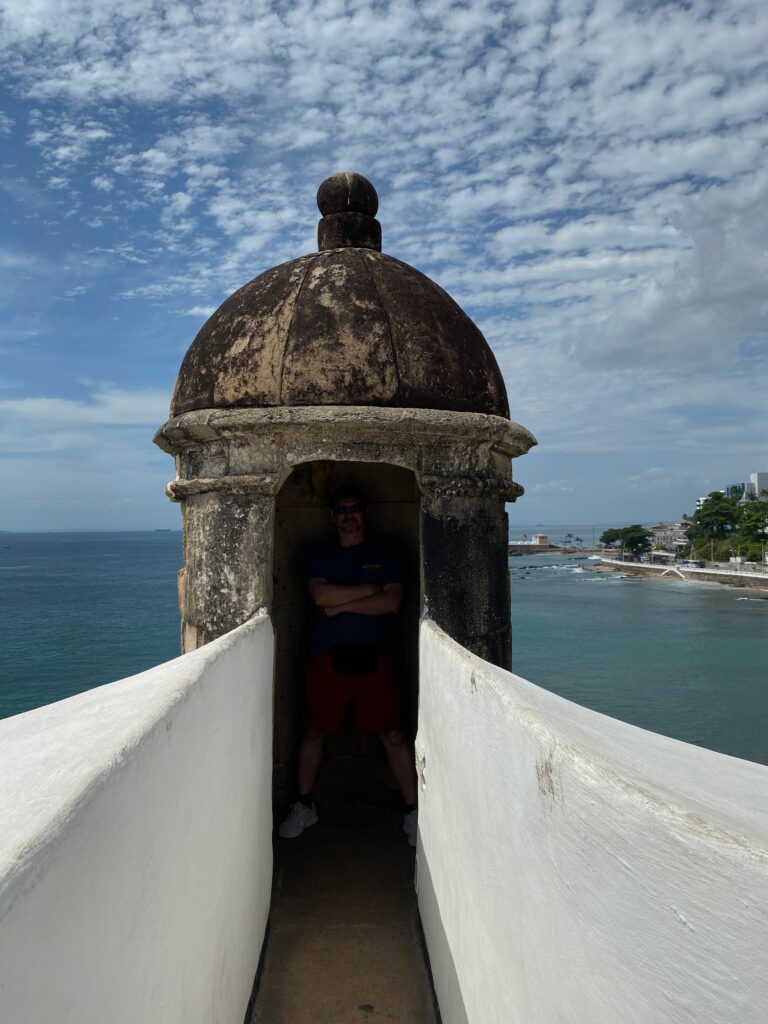
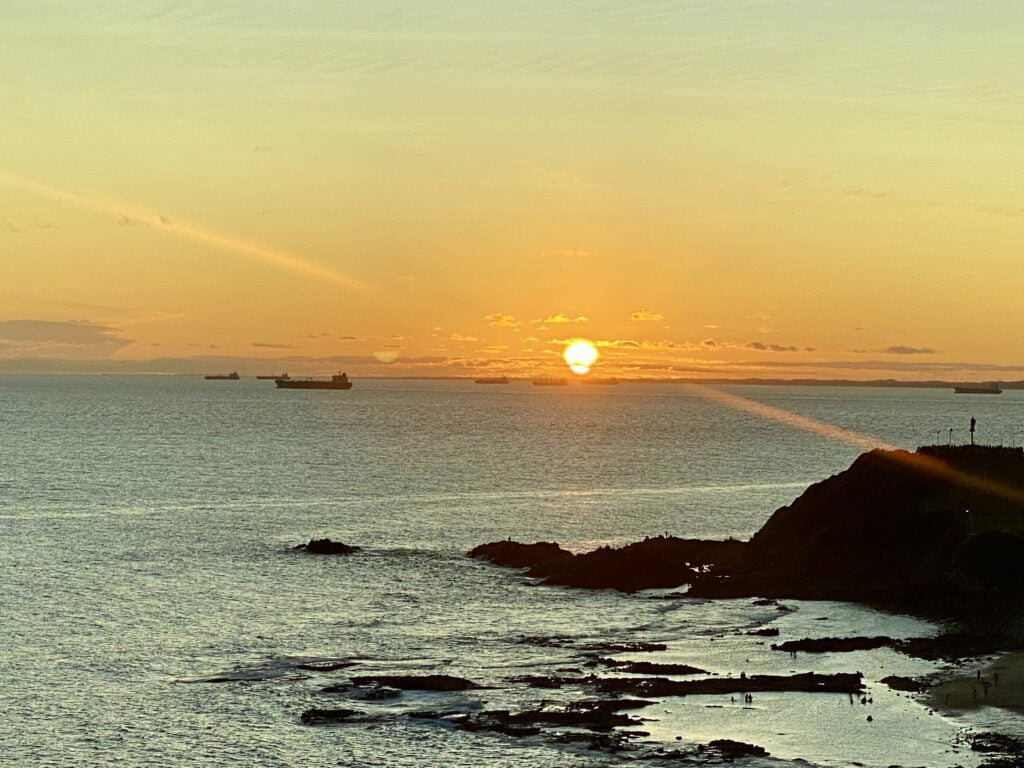
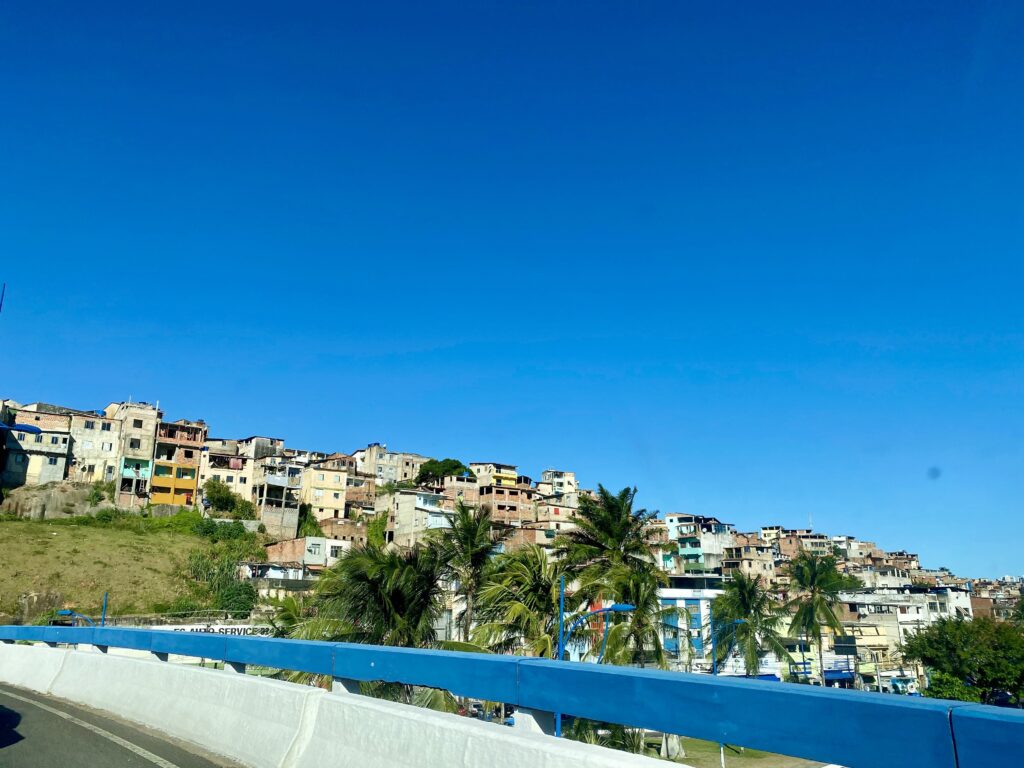
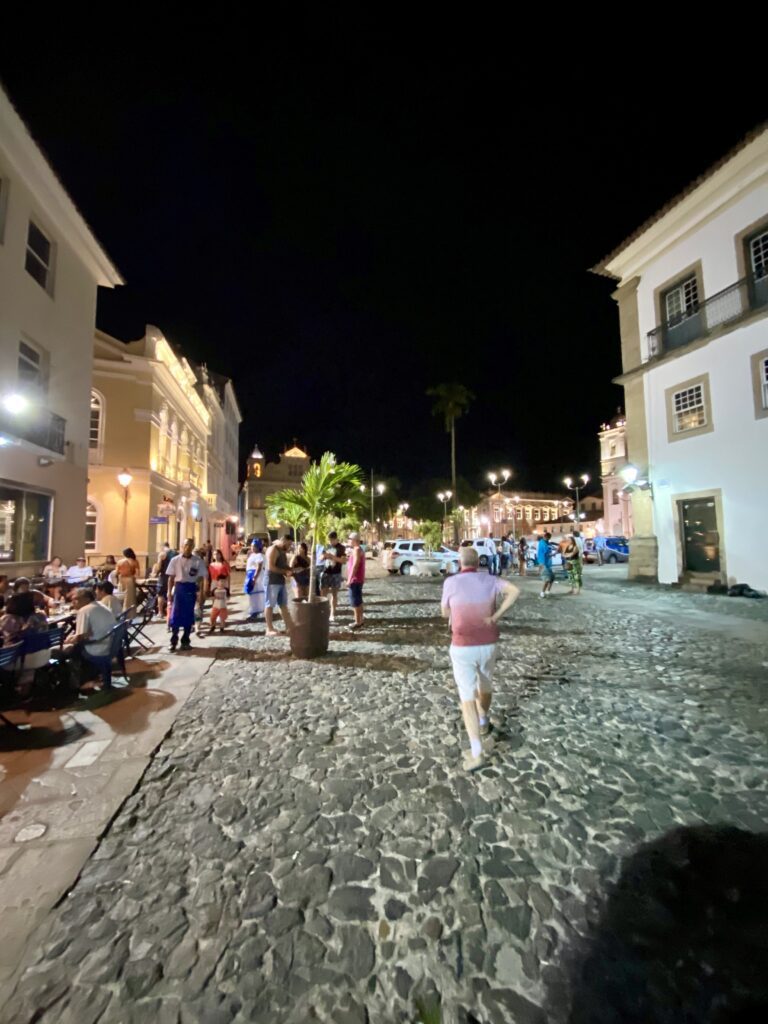
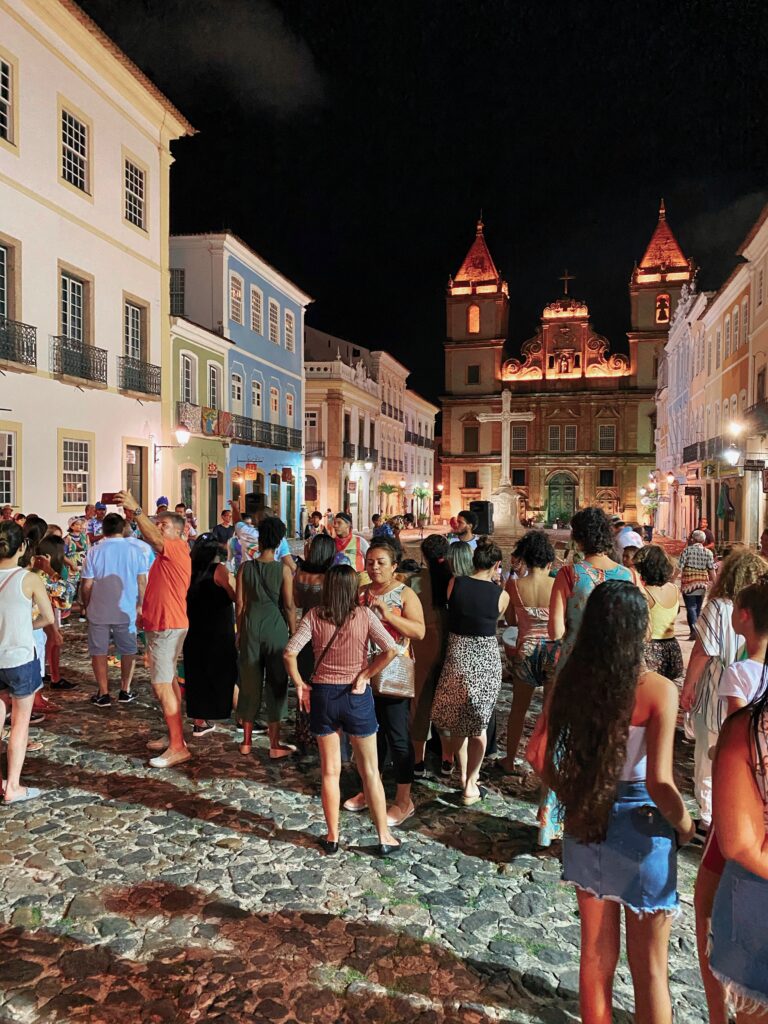
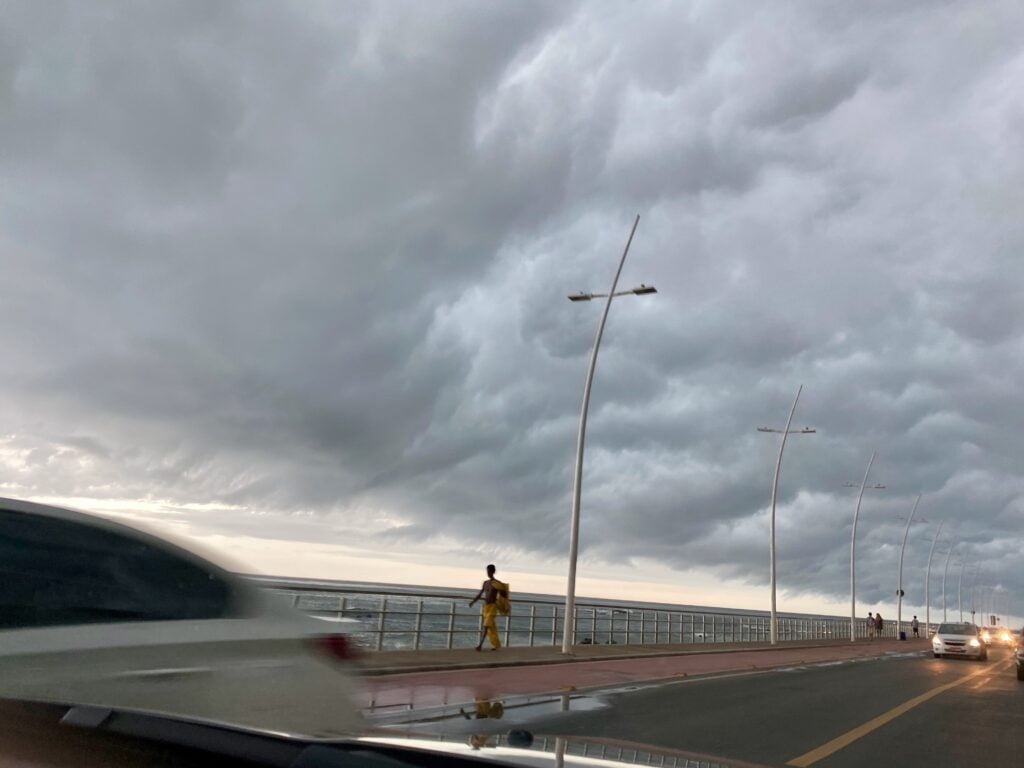
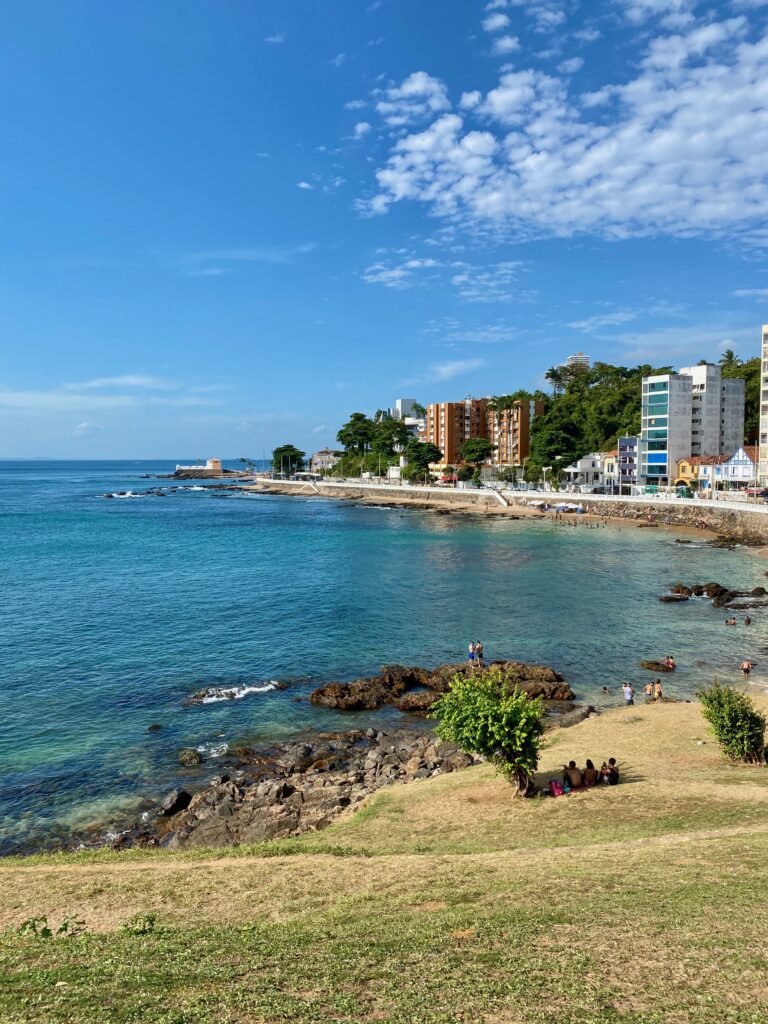
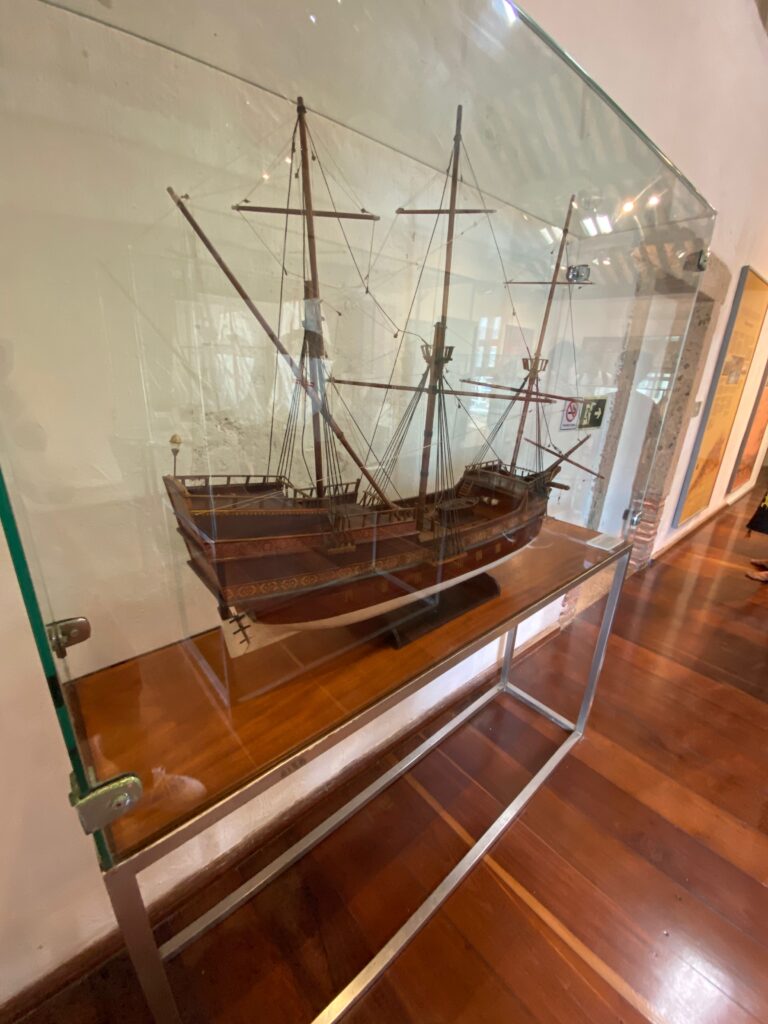
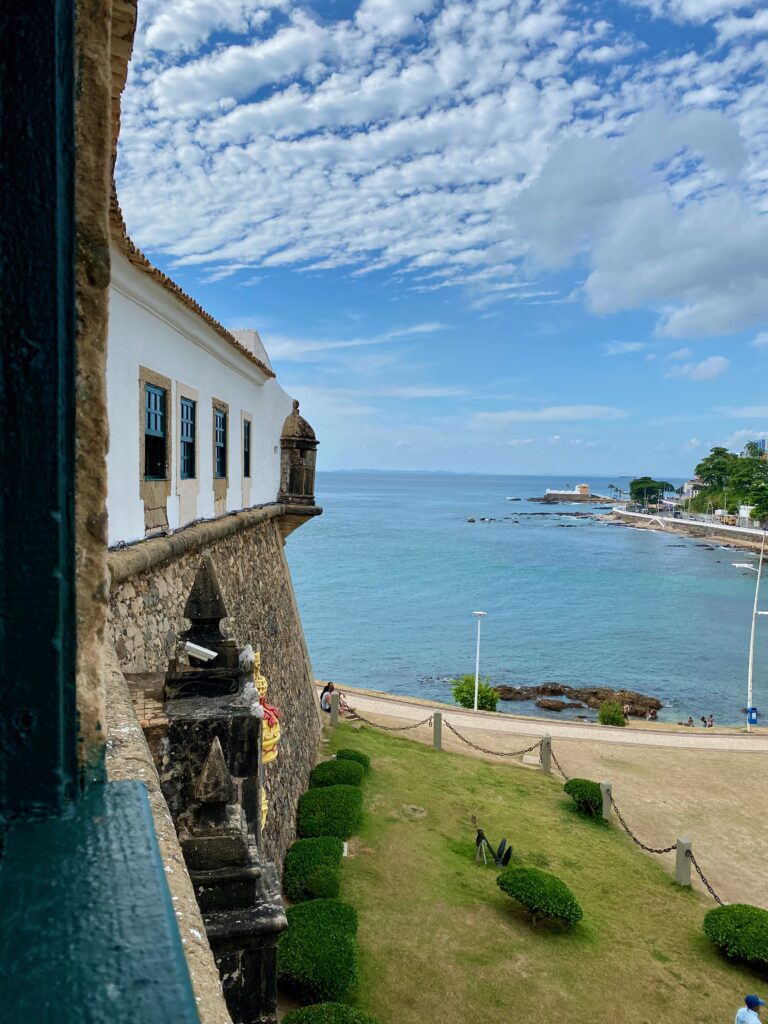
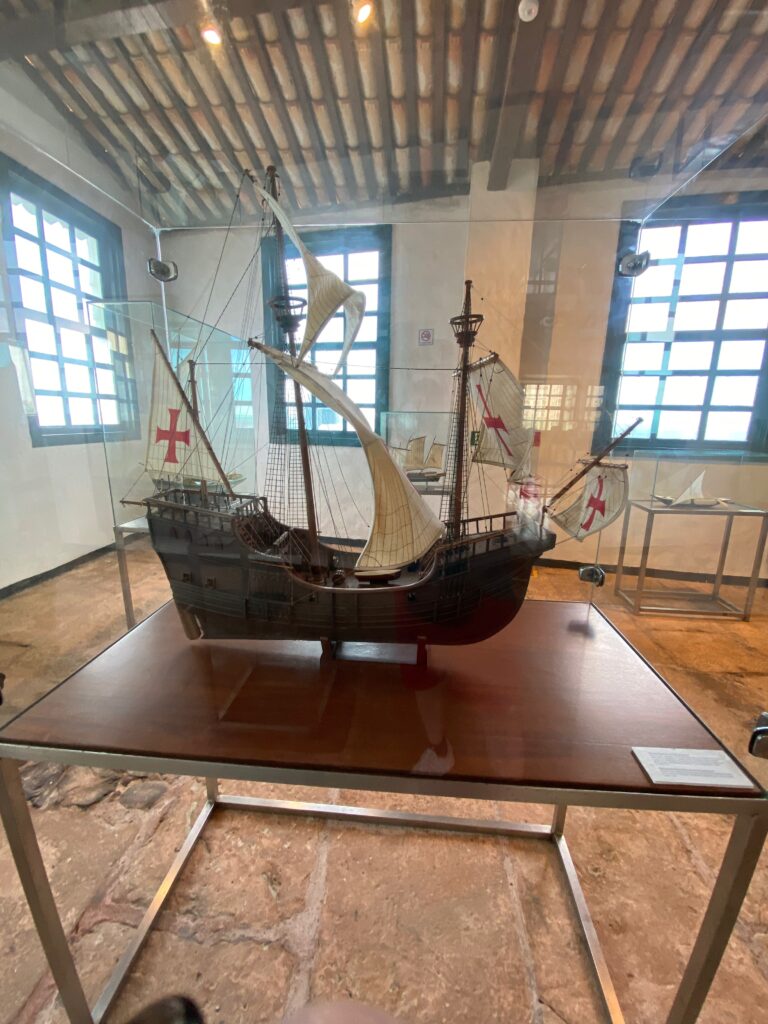
Salvador Key hub in the African slave trade
Salvador was an important port and trade center during this time, and it was also a key hub in the African slave trade. Many African slaves were brought to the city and the surrounding region to work on sugar plantations and in other industries, such as mining and construction.
Slavery in Salvador and Bahia was characterized by the harsh and abusive treatment of slaves, who were often subject to brutal punishment and had few legal rights. Slaves in Salvador and Bahia were often forced to work long hours under difficult conditions, and they had little or no control over their own lives.
Despite the harsh treatment of slaves, however, there were also instances of resistance and rebellion among the enslaved population. Some slaves were able to escape and form their own communities, known as quilombos, in the surrounding countryside. There were also instances of organized revolts and resistance against the slave system in Salvador and Bahia, although these were often met with severe repression by the authorities.
Overall, slavery played a significant and deeply tragic role in the history of Salvador and the broader region of Bahia, and it left a lasting impact on the region’s culture and society.
Tomé de Souza the first Governor
Tomé de Souza was a Portuguese colonial administrator who played a significant role in the early history of Brazil. He served as the first governor-general of Brazil, and he is credited with establishing the foundations of Portuguese rule in the country.
Tomé de Souza was appointed governor-general of Brazil in 1549, shortly after the Portuguese colonizers established the first capital of Brazil in the city of Salvador. As governor-general, he was responsible for overseeing the administration and development of the colony, including the establishment of government institutions, the administration of justice, and the promotion of economic development.
During his time as governor-general, Tomé de Souza faced many challenges, including resistance from indigenous groups and the need to establish order in the newly-colonized territory. He is also credited with encouraging the settlement of the colony by encouraging the immigration of Portuguese families and the establishment of agriculture and other industries.
Overall, Tomé de Souza played a significant role in the early history of Brazil as the first governor-general of the colony and one of the key figures responsible for establishing Portuguese rule in the region.

